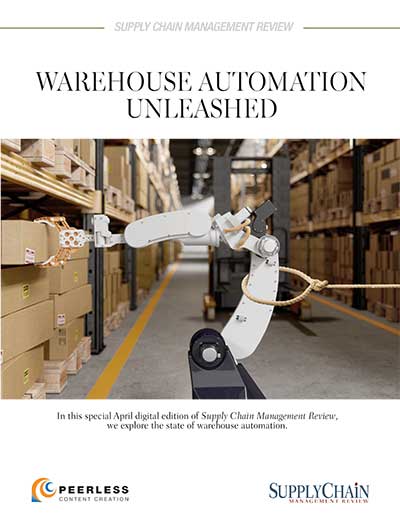Pallets could be the ultimate supply chain commodity. Many users buy strictly on price, and will change suppliers to save a nickel – or about $25 a load. Used pallets regularly replace new, and second rate used pallets are often a substitute for first rate used. Margins are low, customer demands are high.
With that background, it was a surprise to chat in San Antonio last week at CSCMP with David J. Rosen, an investment partner with the Pritzker Group. The company is the private capital investment vehicle for the Pritzker family, which made its fortune with Hyatt Hotels. Other holdings include TransUnion and the Royal Caribbean cruise line. The Pritzker Group also owns PECO Pallet.
The pallet rental company’s motto is: We’re passionate about pallets. As many readers know, I grew up in the pallet industry and worked years ago in my family’s pallet business. With that experience, I asked Rosen why one of the country’s wealthiest families was interested in pallets?
“We’re not flipping companies,” Rosen said. “We look for themes and trends in an industry, and we look at businesses where there is an opportunity to deploy more capital for attractive returns.” Looking at the overall pallet market, and Costco’s move towards block pallets, Pritzker saw an opportunity to gain market share in a huge market with a need for a high quality pallet and high quality customer service.
Pallets may be a low-margin commodity, Rosen added, but PECO isn’t competing with the local pallet guy. It is competing with CHEP, “and I don’t view what we or CHEP does as a commodity business. There’s a high barrier to entry: if you want to compete with us you have to spend a lot of money on a pool of pallets and to open a network of repair depots.” More importantly, he views the pallet rental market as a supply chain play.
We discussed the fact that historically, PECO has been about 1/10th the size of CHEP in North America. The company emphasized the quality of its pallets and service, but it was often a risk management play for customers who didn’t want to have all of their eggs in the CHEP basket. Or, for whatever reason, preferred not to deal with CHEP. With the collapse of iGPS a few years ago, many large CPG companies may have been reluctant to expand their business with a relatively small player like PECO. Rosen believes the Pritzker’s deep pockets will be an asset to PECO. “The Pritzker balance sheet provides PECO with financial stability and capital to make investments, such as extending our service into Mexico and Canada,” Rosen said. “If need be, one of the Pritzker’s can make a phone call to senior management to assure them that we will do what it takes to support them.”
How then does Pritzker take PECO to the next level? Rosen identified a few key steps.
Continue to focus on quality and customer service: To that end, PECO recently made a significant investment in technology to provide customers with visibility into the location of their pallets and reduce loss rates. “We think it’s an innovation in this space,” Rosen said.
Control PECO’s supply chain: While most of PECO’s and CHEP’s repair depots are managed by third parties, PECO recently opened two of its own state of the art repair depots.
Focus on the total cost of ownership: Rosen believes that in the PECO and CHEP world, a pallet is really a supply chain play and not just a pallet. “Total cost of ownership is not about the cost of the pallet, but the total supply chain cost,” Rosen said. “We’re looking at how we can add value to your supply chain.” One strategy is to look for opportunities further up in the supply chain. Most CPG companies use PECO and CHEP to ship their finished goods to their customers. They still receive raw materials, parts and components into their factories on their suppliers’ pallets. “We would like to be part of that complete supply chain, beginning with the pallets coming into a plant,” Rosen said.
The $60,000 question is always whether the market is ready to hear that message, especially when it comes to a commodity product like pallets. “It’s an education process,” Rosen acknowledged. “There are customers that are singularly focused on price. Then again, there are others that are attuned to the total cost of ownership message. We want to reach those customers.”
SC
MR


Latest Supply Chain News
- Technology’s role in mending supply chain fragility after recent disruptions
- Tech investments bring revenue increases, survey finds
- Survey reveals strategies for addressing supply chain, logistics labor shortages
- Israel, Ukraine aid package to increase pressure on aerospace and defense supply chains
- How CPG brands can deliver on supplier diversity promises
- More News
Latest Resources

 Explore
Explore
Topics
Latest Supply Chain News
- Technology’s role in mending supply chain fragility after recent disruptions
- Tech investments bring revenue increases, survey finds
- Survey reveals strategies for addressing supply chain, logistics labor shortages
- Israel, Ukraine aid package to increase pressure on aerospace and defense supply chains
- How CPG brands can deliver on supplier diversity promises
- How S&OP provides the answer to in-demand products
- More latest news
Latest Resources

Subscribe

Supply Chain Management Review delivers the best industry content.

Editors’ Picks




